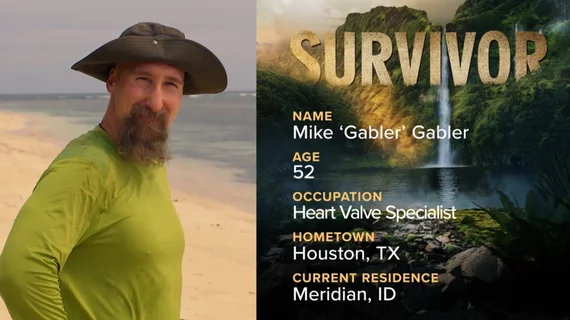Mike Gabler, a heart valve specialist with Edwards Lifesciences, wins Survivor—and donates his $1M prize
Mike Gabler, a 52-year-old heart valve specialist, has won season 43 of the popular reality show Survivor—and he’s donating his entire $1 million prize to veterans.
Gabler, a Texas native, has two decades of experience in the cardiology space, spending the last 11 years with Edwards Lifesciences. He has also previously worked for both Medtronic and Boston Scientific. His role with Edwards involves working closely with transcatheter aortic valve replacement (TAVR) programs and educating clinicians about the company’s TAVR and surgical aortic valve replacement offerings.
Gabler surprised Survivor fans with his victory—over the course of the show, he was never viewed as a terribly serious threat by the other contestants—and he surprised everyone even more with his plan to donate the winnings.
“There are people who need that money more,” Gabler said to Survivor host Jeff Probst after he was announced as the winner. “And I'm going to donate the entire prize—the entire million-dollar prize, in my father's name, Robert Gabler, who was a Green Beret—to veterans in need who are recovering from psychiatric problems, post-traumatic stress disorder, and curb the suicide epidemic.”
Gabler was quick to emphasize that the show’s other contestants deserved recognition for the donation. Many of them started to cry after he announced his plan.
“We're going to help veterans in need and we're going to donate that entire million dollars to them," Gabler said. “And I'm forever grateful that we did this.”
Gabler is one of the oldest winners in the Survivor’s 43-season history. No other previous winner has donated the entire prize.
Entertainment Weekly interviewed Gabler after his victory was announced. Click here to view the full conversation, which includes questions about his strategy, his personal life—and his favorite heavy metal bands.

